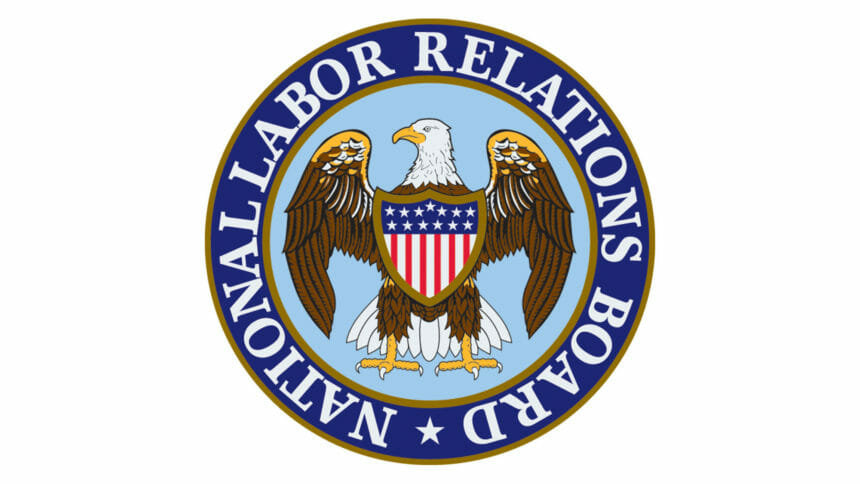
August ended with a flurry of decisions from the National Labor Relations Board that could affect long-term care employers and employees.
The board announced two decisions on Thursday and two on Wednesday.
In one decision issued Thursday, the NLRB voted 3-1 that concerted advocacy by statutory employees on behalf of nonemployees is protected by the National Labor Relations Act when it can benefit the statutory employees. The decision, which the board says was made Aug. 26 in American Federation for Children, Inc., reverses a 2019 decision made in Amnesty International, returning to a former precedent.
“The previous Board in Amnesty International failed to recognize that ‘mutual aid or protection’ easily covers situations where employees extend help to nonemployees, especially those who work alongside them,” Chairman Lauren M. McFerran said. “Standing in solidarity can be a protected act regardless of the employment status of those you stand with — the question is simply whether, in helping others, employees might help themselves and get help in return.”
In American Federation for Children, Inc., the board also reaffirmed that job applicants are statutory employees and that the immigration status of workers typically is immaterial to employee status under the NLRA, although in this case, the board found that the activity was protected regardless of whether the applicant was a statutory employee.
Also on Thursday, the board announced an Aug. 25 decision that returns to using a former test to determine whether an employee who intends to induce group action by fellow employees engages in protected concerted activity under Section 7 of the NLRA.
In its decision in Miller Plastic Products, Inc., the board voted 3-1 to reaffirm the principle, originally announced in 1986 in Meyers Industries, that “the question of whether an employee has engaged in concerted activity is a factual one based on the totality of the record evidence.”
In issuing the ruling, the board overruled Alstate Maintenance, LLC, a 2019 decision that effectively narrowed the test for determining concerted activity. The NLRB said it believed that Alstate Maintenance had adopted an “unduly restrictive” test for defining concerted activity by introducing a mechanical checklist of factors in place of the board’s “traditional, fact-sensitive approach.”
“This change imposed significant and unwarranted restrictions on concerted activity, undermining the goals of the act,” the board said.
“The right of employees to engage in concerted activity to improve their working conditions is central to the National Labor Relations Act. The Board should not artificially constrain the definition of concerted activity, as the Alstate Maintenance decision did,” McFerran said. “By returning to the Board’s traditional approach, we better protect employees who seek to improve their working conditions.”
Two decisions announced Wednesday
Wednesday, the board announced two decisions that had been made Saturday.
Both Wendt Corporation and Tecnocap, LLC address the statutory duty of employers to bargain with unions before making changes in terms and conditions of work.
In Wendt, the board overruled a 2017 case, Raytheon Network Centric Systems, which had given employers greater latitude to make unilateral changes affecting a unionized workforce during a contractual hiatus or during negotiations for a first contract. The board also reaffirmed the principle that an employer may never rely on an asserted past practice of making unilateral changes before employees were represented by a union (when the employer had no duty to bargain) to justify unilateral changes after the workers select a bargaining representative.
In Tecnocap, the board overruled a different aspect of Raytheon that had not been addressed in Wendt. The NLRB held that an employer’s past practice of unilateral changes that was developed under a management-rights clause in a collective-bargaining agreement cannot authorize unilateral changes made after the agreement expires and while bargaining for a new agreement is under way.
“Our decision today returns to a more faithful application of Supreme Court precedent,” McFerran said. “By protecting employees who have chosen a union representative from being subject to discretionary unilateral changes in their terms and conditions of employment without bargaining, the policy we announce today better promotes the collective-bargaining process that lies at the core of the National Labor Relations Act.”
This week and last
This week’s decisions followed several issued earlier in the week or last week.
One, announced Monday in the Intertape Polymer Corp case, may make it easier to show that an employer has retaliated against employees for participating in union or other legally protected activities.
In another, coming out of the Cemex Construction Materials Pacific, LLC and International Brotherhood of Teamsters case and announced Aug. 25, the board established a new framework for determining when employers are required to bargain with unions without a representation election.
And all of the decisions follow a final rule issued Aug. 24 by the NLRB to “meaningfully reduce the time it takes to get from petition to election in contested elections and will expedite the resolution of any post-election litigation.”

